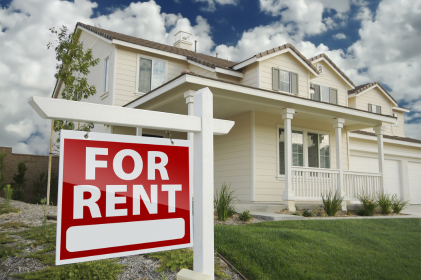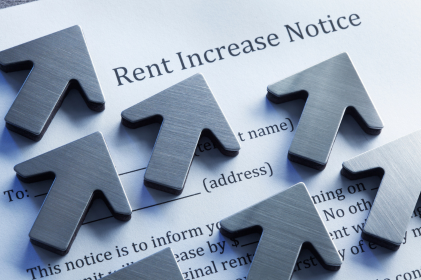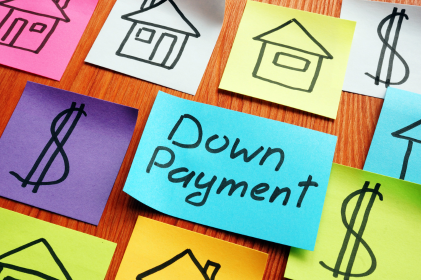Getting ready to find a new place to call home? Whether you’re a first-time renter, a seasoned homeowner, or someone in between, the decision to rent or buy is a big one that has a serious impact on your future plans. There are plenty of things to consider when making this choice; let’s dive into the pros and cons of renting and buying so you can make an informed decision that works for you and your family.
The Pros of Renting:

Flexibility: Renting offers unparalleled flexibility, a crucial factor for those whose careers or lifestyles demand frequent changes. If the prospect of packing up and relocating without the hassles of selling a property appeals to you, renting might be the ideal choice. Having the freedom to move on is one of the biggest benefits of renting, especially if you know that there may be changes – like a new job or a growing family – in your future.
Maintenance-Free Living: One of the more notable perks of renting is the maintenance-free lifestyle it affords. Things like leaky faucets, appliance trouble, or problems with your HVAC system are the responsibility of your landlord, meaning you don’t have to worry about issues that will no doubt come up at some point.
Lower Initial Costs: Not ready to make a big upfront commitment? Whether you’re trying to save or have other costs to deal with, renting requires a much lower upfront financial commitment; most rentals only require a deposit for the first and last month’s rent to secure your space.
Financial Predictability: Renting provides a level of financial predictability with fixed monthly payments, offering stability and ease in budgeting for individuals and families alike. Knowing what to expect every month adds a level of security when it comes to financial planning.
The Cons of Renting:

Lack of Equity: One of the biggest downsides of renting is the lack of opportunity to build equity. Renting doesn’t give you the chance to build equity over time despite your regular payments, which is a crucial consideration for those looking to make a long-term investment.
Limited Personalization Opportunities: Renting may restrict your ability to personalize your living space. Most rentals will only allow for minimal or no cosmetic changes to the home, meaning you don’t have as many options when it comes to making the space your own.
Rent Increases: Rental prices can fluctuate, and annual rent increases may occur, impacting your budget. Be prepared for potential changes in your monthly payments. Keep in mind that homes and buildings that were built after November 15, 2018 in Ontario are exempt from rent control.
Limited Long-Term Stability: While renting provides a perk in the form of immediate flexibility, it may lack the long-term stability that homeownership provides. Consider your long-term goals and the stability you desire for your living situation.
Finding the Perfect Rental: The availability of rental units (and pricing) can fluctuate, making it difficult at times to find the right space that works for your family and your budget. The rental market can also be very competitive and you may have to try several times before you lock a great spot down.
The Pros of Buying:

Opportunity to Build Equity: Owning a home allows you to build equity over time, contributing to your overall net worth. If the prospect of a valuable investment and long-term financial stability is appealing, homeownership might be the right choice for you.
Creative Freedom: Homeownership provides the freedom to personalize your space, making it uniquely yours. Express your creativity and style without the limitations of rental agreements. Love a good DIY project or want to make some renovations to fit your needs? This is an appealing aspect of owning your home!
Potential for Appreciation: Real estate has the potential to appreciate over time, providing homeowners with a valuable asset that can impact plans. If you’re considering homeownership as a financial investment, the potential for appreciation is a key factor to consider.
Stability and Roots: Buying a home offers a sense of stability and roots in a community, making it an attractive option for those looking to establish long-term connections and a sense of belonging.
The Cons of Buying:

Initial Financial Commitment: Buying a home typically involves a significant upfront financial commitment, including a down payment and closing costs. Consider your current financial situation and ability to make this initial investment. In Ontario, the minimum down payment you’ll need to make starts at 5% of the purchase price for homes valued at $500,000 or less.
Maintenance Responsibilities: Homeownership comes with something you can’t escape – maintenance responsibilities. From plumbing issues to appliance repairs, homeowners need to allocate time and resources to ensure the proper upkeep of their properties. Surprises happen when you least expect them and you’ll be on the hook for repairs and replacements, which can add up quickly!
Market Fluctuations: The real estate market can be unpredictable, impacting property values. Consider the potential for market and variable mortgage rate fluctuations and how they may affect your property’s value and your financial situation.
Limited Flexibility: Unlike renting, owning a home may limit your ability to relocate quickly. If your lifestyle requires flexibility and the potential for frequent moves, this limitation is a very important factor to consider.
Property Taxes and Additional Costs: Homeownership comes with additional costs such as property taxes, insurance, maintenance fees, etc. Be sure to understand these financial obligations to make an informed decision as they can have a big impact!
Tips for Making Your Decision:
Keep these things in mind to help you make the best decision for your goals:
Assess Your Financial Situation: Understand your current financial standing and future goals. Consider your savings, income stability, and long-term financial objectives.
Evaluate Your Lifestyle: Reflect on your lifestyle and future plans. Are you looking for flexibility, or do you crave stability and roots in a community? Do you plan on staying put for a while? Are kids in your future? These are all things that are important to consider before making your decision.
Understand the Real Costs: Look beyond the initial costs and consider the long-term financial implications, including potential increases in rent, variable mortgage rate changes, or unexpected homeownership expenses.
Consider Your Long-Term Goals: Determine your long-term goals and how homeownership or renting aligns with them. Whether it’s building equity or maintaining flexibility, ensure your decision supports your future goals.
Consult with Real Estate Professionals: Reach out to a team of experienced real estate professionals, like our team of experts, to guide you through the decision-making process. They’ll be able to offer personalized advice based on your specific situation.
Deciding on whether to rent or buy isn’t straightforward; this is a significant step toward shaping your future. Both options have their perks and drawbacks, and the right choice depends on your circumstances and aspirations. Remember, there’s no one-size-fits-all answer and there are many important factors to consider along the way.
At Coldwell Banker Community Professionals, we understand that the decision-making process can be challenging. Our team of dedicated real estate professionals is here to support you at every step. When the time comes to explore the next chapter in homeownership or selling, we’re ready to make your transition smooth!

 Facebook
Facebook
 X
X
 Pinterest
Pinterest
 Copy Link
Copy Link

